

There is an old saying, Musicals aren’t written, they’re rewritten. This is certainly true of Wednesday Matinee, which went through three rewrites of the lyrics and a change of composer before it reached its definitive version.
By 1978, Pub Theatre Company was celebrating its fifth Anniversary. Peter Scott‐Presland decided to write a kind of portrait gallery of character songs, tailored to each member of the company, bound together by a chorus at the beginning and the end, and the whole thing making a cabaret evening, which was short enough to allow for a decent knees‐up at the end.
For this occasion, we invited several of the original Pub Theatre back, who performed The Housewife and the Old Lady.
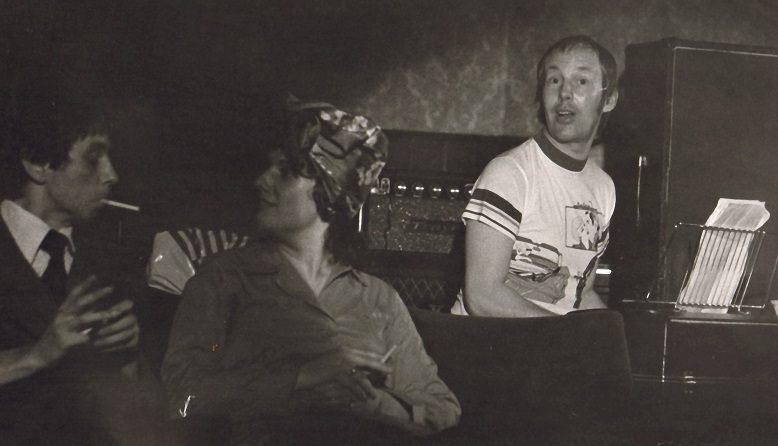
When I was at school, I used to bunk off games regularly on Wednesday afternoons from 1964 to 1968, so I thought of the comic ‘saddos’ who used to go to those wet afternoon matinees.
There, I built an encyclopaedic knowledge of the films of Richard Widmark, Kirk Douglas, Robert Mitcham and with trepidation saw my first Xrated film, Whatever Happened to Baby Jane? It was nowhere near as horrible as my mental build‐up suggested, although Bette and Joan enslaved my embryonic queer imagination. I never had the approach from an older man in the cinema which is part of urban mythology and which I’m sure I both dreamed of and shuddered at the prospect, such is self‐oppression.
The cinema could have been one of several: The Rex, East Finchley, now the Phoenix and a stalwart of the Independents; or the Astoria, Finsbury Park, where I got my first hard‐on, I think, at the sight of Lex Barker as Tarzan, and also saw the Beatles Christmas Show in 1964. Or the other Rex, in Islington, now the Screen on the Green; there I saw a triple bill of Gene Kelly in The Three Musketeers (another hard‐on), Laurel and Hardy in Swiss Miss, and The Marx Brothers Go West, nearly five hours for 1/9d, or about 9p in new money. Or maybe it was the Ionic, Golders Green, opened by Pavlova in 1913. The names say it all really.
The venue for the birthday party was that lively performance pub, The Fighting Cocks in Moseley, where we’d been performing regularly throughout. The composer was Chris Kaday, an advertising executive for Kalamazoo Business Systems who was playing on the Birmingham folk circuit, with a gift for catchy tunes. He came to see another show we did, and suggested he wrote something for us. We wrote two other shows together. (See Pub Theatre Company)
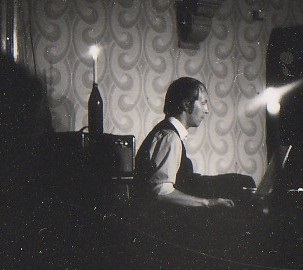
It was easy to create a set, consisting of two or three rows of old cinema seats facing front screwed down to boards, and one follow‐spot projecting over the heads of the audience with a colour wheel turning to create the flicker of a film. That was all it needed, and it took about half an hour to set up. Individuals largely rehearsed separately with Chris, except for the three ensemble numbers. The whole project took no time at all.
Each of the portraits was tailored to the talents of those who were appearing. Mike Wood had tap‐dancing skills, so the Critic had to have a tap number. Pam had one of the finest comic talents in Birmingham for the Housewife. Janice Connolly, one of the pensioners, operated on that fragile border between comedy and pathos, as her later Radio incarnation as Barbara Nice proves.
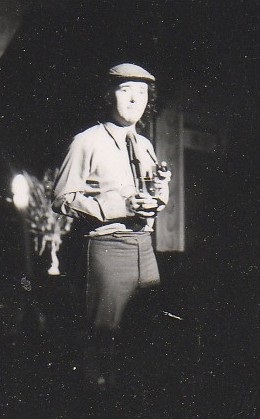
Mike Cooper was a singer‐songwriter-guitarist as well as being a company member, and he therefore wanted to write his own song as the Schoolboy. This he did, which is what is on the recording, but I have to say I was never happy about this, and we argued. I felt it damaged the unity of the show having a separate style for one song.
Worse, it made the schoolboy a cartoonish figure of maybe ten or eleven years old; certainly, pre‐pubertal. I was committed to building the finale of the show around two pairs of people, one gay, one straight, having it off or trying to have it off in the back rows of the stalls. As the only gay member of the company I felt the need to insist on a gay presence through the company’s work, which would be visible in the birthday celebration.
Mike’s decision pushed us into the realms of paedophilia, and partly as a compensation I played the Dirty Old Man very aggressively. “OK”, I said to the audience, “this is what you think of Queers, so I’ll give it to you in spades and I hope it makes you uncomfortable, because this is your creation.“
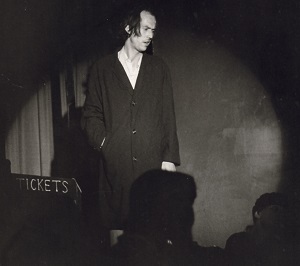
Listening to the tape, it seems I overthought it because despite a fraction of discomfort, there was an overwhelmingly uproarious reaction. The gales of laughter in the finale are from the visual gag of vast amounts of clothing presumably being cast off behind the seats and thrown to the front and over the others, by the courting couples. More cartoon, more outrageous, but more removed from realism and therefore safer.
Wednesday Matinee was one of the ’what‐might‐have‐been’ moments of my life. One of the people who saw the show was Peter Ansorge, a producer for BBC TV at Pebble Mill. Mainly and contemptuously known for Crossroads, it had come up in the world with Second City Firsts, which had already gone through about five series of six thirty‐minute self‐contained plays.
Would we like to adapt Wednesday Matinee as an episode in the next series? Chris was wildly excited but I was more cautious. I never believed the BBC was particularly sensitive to gay material, and I was suspicious it would be turned into something more exploitative. Peter however was entirely reassuring. Any changes would need our agreement.
The director would be Richard someone‐or‐other (possibly Richard Stroud) whose experience was mainly in documentary. We would create little movie scenes for each of the characters, the idea being that each was wrapped in their own fantasy, so what they were watching in their own heads was not necessarily the same film that everyone else was watching. These dream sequences could be superimposed over what the characters were singing, so it might not be necessary to rewrite, though it would be necessary to cut.
Best of all, they wanted to get Beryl Reid for the Housewife. Dream casting to my mind. It would have been, according to Peter, the first musical made specifically for British TV.1
The director was in London, so I started a commute. I realised I knew nothing about writing play scripts for television, despite having written numerous continuity scripts for ATV Midlands, so I was defensive. At first, Richard wanted to cut the Schoolboy and the Dirty Old Man completely. I told him it was impossible because it would destroy the balance of the finale and mean a complete rewrite of three songs.
He withdrew the suggestion and we started fencing over cuts line by line. I ping‐ponged from New Street to Euston three or four times and by the last trip I’d beaten him down to two changes. Two words had to go were ‘pulsating› and ‘toilets’.
You don’t really mean to spoil it,
You don’t really need to frown
Come with me into the toilet
I’ll give you half a crown
I changed this to:
You don’t really mean to quibble
You don’t really mean to frown
Come with me and have a nibble
I’ll give you half a crown
While ‘Come on boy, I'm all pulsating’ became, ‘Come on boy, your lolly’s waiting’.
Thus, honour was satisfied on all sides. Shades of Marie Lloyd under the eye of the local watch, changing She sits among the cabbages and peas to She sits among the cabbages and leeks.2
It was all scheduled for filming some four months later, when disaster struck. The Musician’s Union called a strike for the period when we were due to record the tracks, so the production was put back. Then Beryl wasn’t available for the new dates and the whole series was cancelled. So, Wednesday Matinee sat in limbo until it could be reinvented as a fundraising vehicle at the end of the 1980s.
Peter Scott‐Presland
Read the Script and listen to recordings from the show:
I Can’t Go On ‐ Rainy Wednesday Afternoon
Wedded Bliss
Critic of the Year
Schoolboy Song
Housewife
Quiet
Interval
Dirty Old Man
Greaser Song
How Nice
Finale ‐Wasn’t It a Lovely Movie
Footnotes
1 I have recently checked this, and that honour goes to Jack Buchanan’s The Golden Hour in 1951, but Wikipedia gives nothing after that until Potter’s Singing Detective.
2 You have to say it out loud.
The film was never made, but various drafts of the script and suggestions exist, as well as some script changes which went on to be used in later versions.
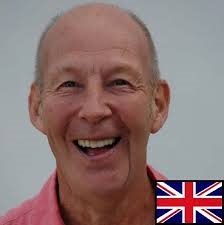
The film music was by Chris Kaday, although he was a pianist and guitarist, and an arranger was going to be brought in for the more lavish effects of the films on the screen.
Back to Top